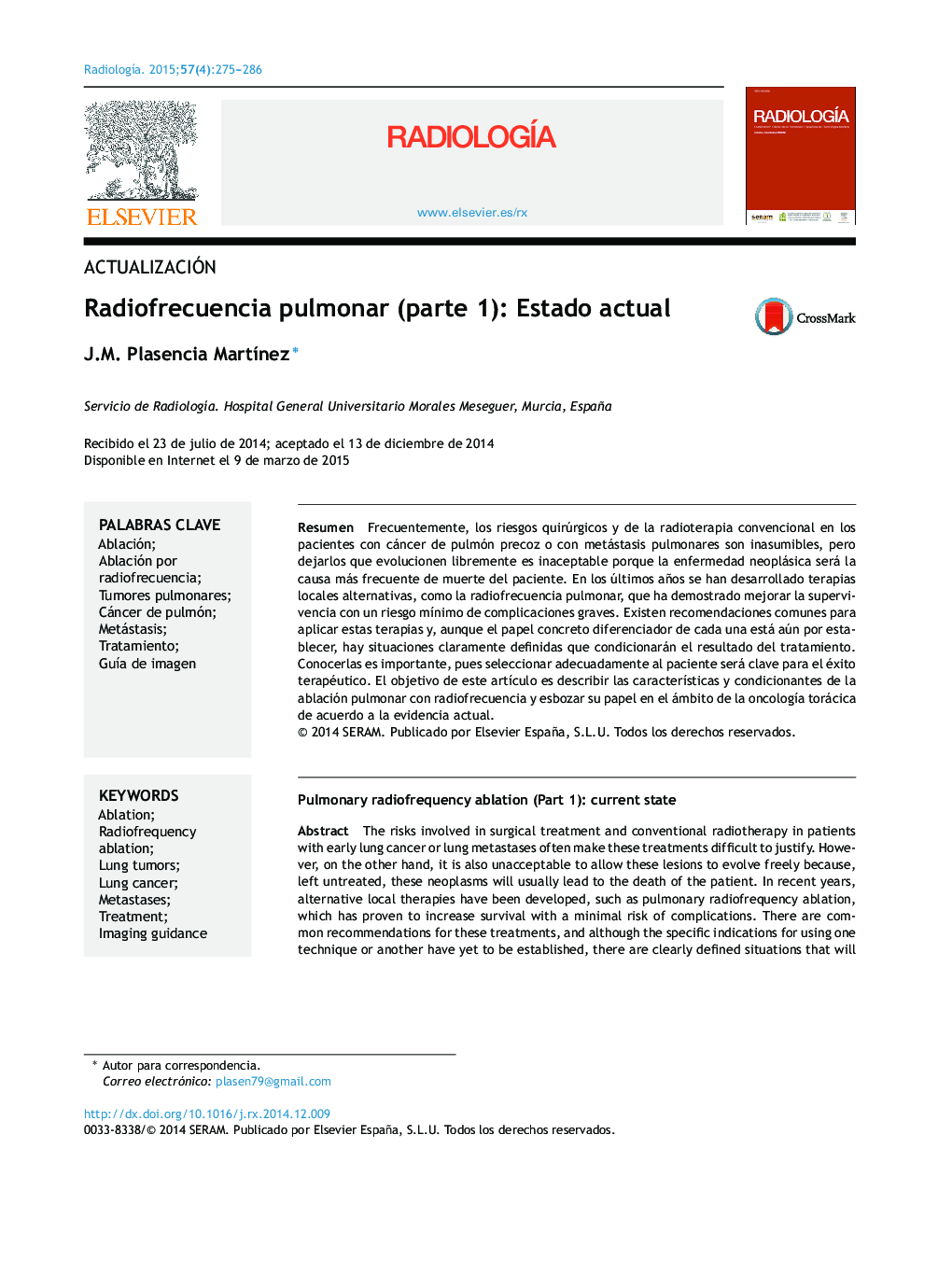| Article ID | Journal | Published Year | Pages | File Type |
|---|---|---|---|---|
| 4245275 | Radiología | 2015 | 12 Pages |
Abstract
The risks involved in surgical treatment and conventional radiotherapy in patients with early lung cancer or lung metastases often make these treatments difficult to justify. However, on the other hand, it is also unacceptable to allow these lesions to evolve freely because, left untreated, these neoplasms will usually lead to the death of the patient. In recent years, alternative local therapies have been developed, such as pulmonary radiofrequency ablation, which has proven to increase survival with a minimal risk of complications. There are common recommendations for these treatments, and although the specific indications for using one technique or another have yet to be established, there are clearly defined situations that will determine the outcome of the treatment. It is important to know these situations, because appropriate patient selection is essential for therapeutic success. This article aims to describe the characteristics and constraints of pulmonary radiofrequency ablation and to outline its role in thoracic oncology in light of the current evidence.
Keywords
Related Topics
Health Sciences
Medicine and Dentistry
Radiology and Imaging
Authors
J.M. Plasencia MartÃnez,
